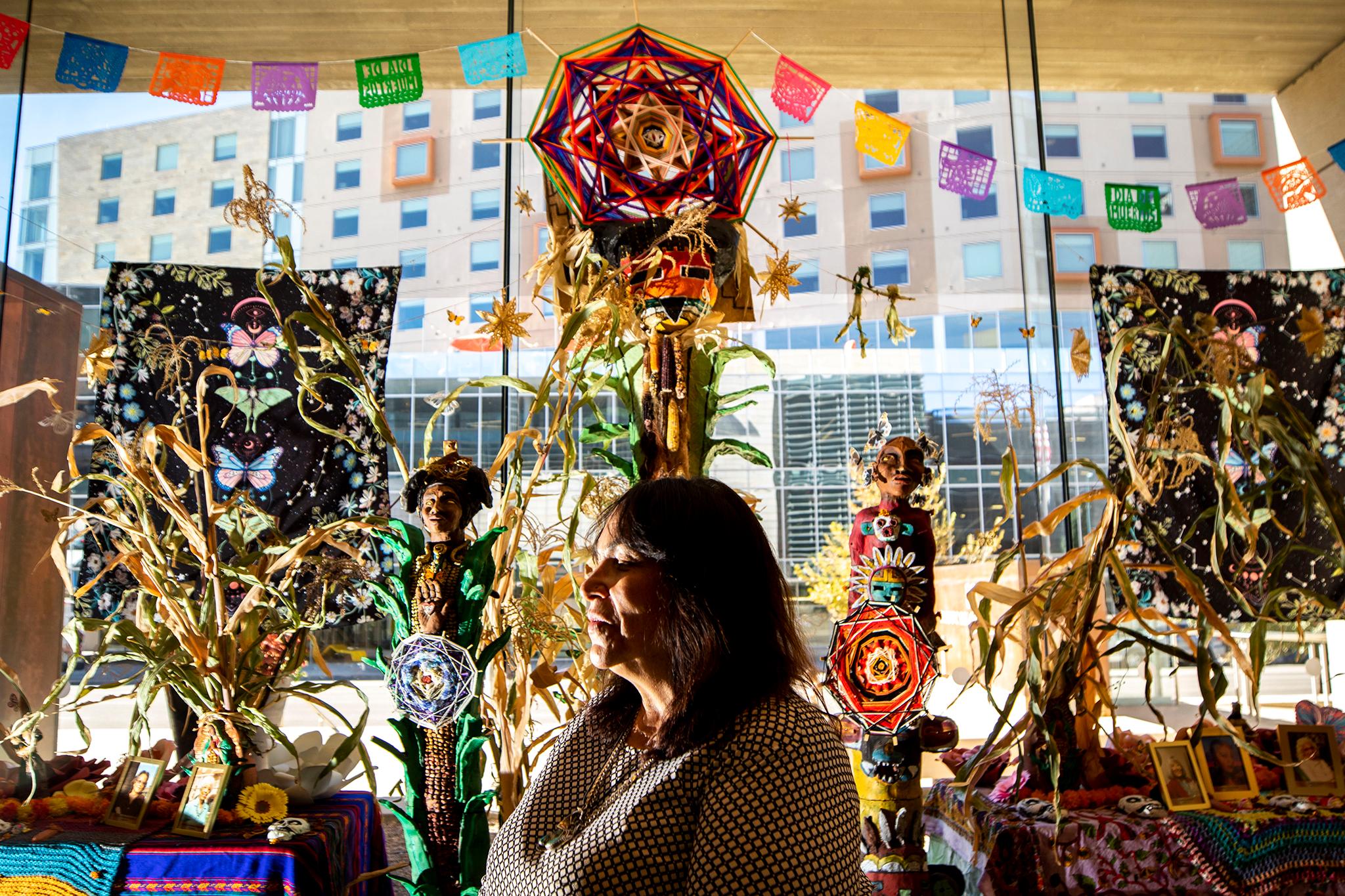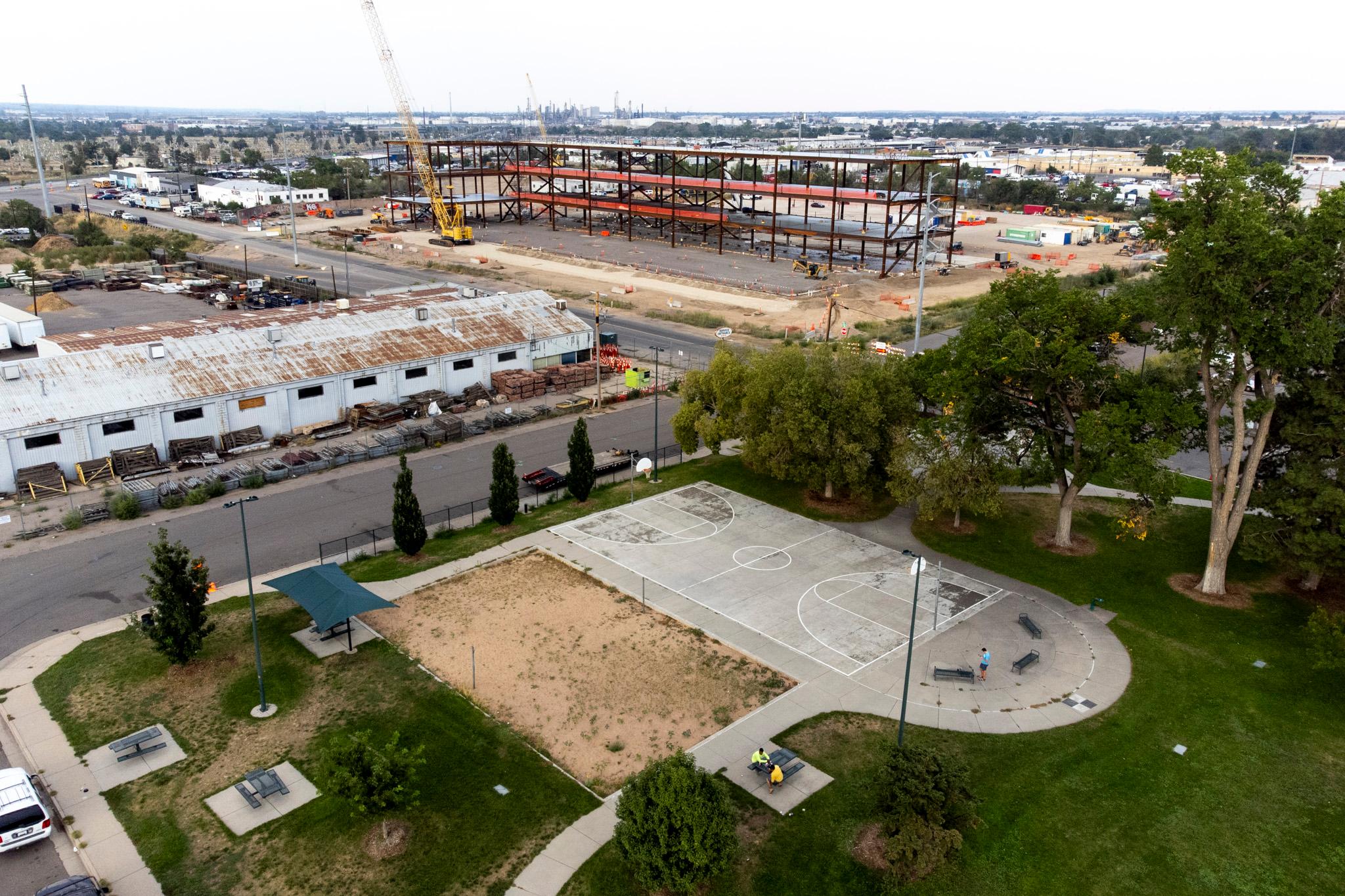The strongest way to keep memories alive and histories intact is through storytelling.
That's one of the reasons why Renee Fajardo, chair of the Chicano Humanities and Arts Council and coordinator of the Journey Through Our Heritage program at Metropolitan State University of Denver, continues to curate the photographic and narrative preservation exhibit "Return of the Corn Mothers," an ongoing project that celebrates women in the southwest and Colorado who are pillars of their respective communities.
The year-long exhibit returns for the first time since 2019 by honoring 22 women, including the late local muralist Alicia Cardenas. It'll be on display starting Friday at the History Colorado Center, 1200 Broadway, until September 2023.
"It's a love letter to the women of the Southwest and the women who have done so much for their communities," Fajardo said. "These women aren't out there earning awards. These are women that are behind the scenes, always doing the hard work. It's a community driven project. People from the community nominate these women and each and every one of them is so committed to what they do."
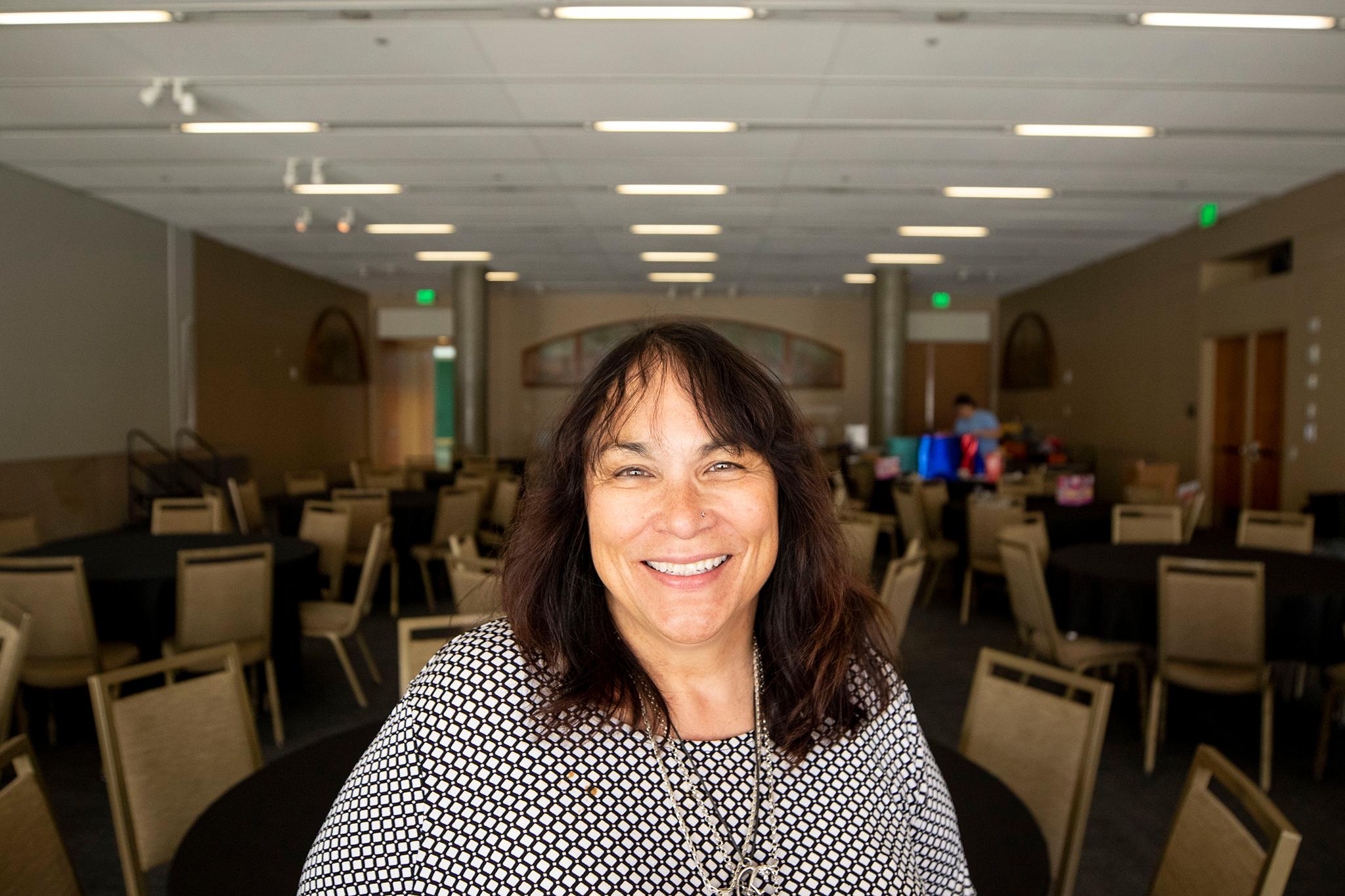
Fajardo said the "supportive figure" these women represent is pretty much the definition of a Corn Mother.
A Corn Mother is a deity-figure that represents growth, community and sustenance. The term comes from Mexico, where Indigenous people began harvesting corn thousands of years ago. As cultivation spread, corn became an important and vital part of the community's culture, and so the deity was born.
"A Corn Mother represents that sustainability of life, the ability to feed your communities, the ability to have hope because even when there's droughts or bad years, as long as you have those seeds or kernels of corn, you're always going to have another chance to have something beautiful," Fajardo said.
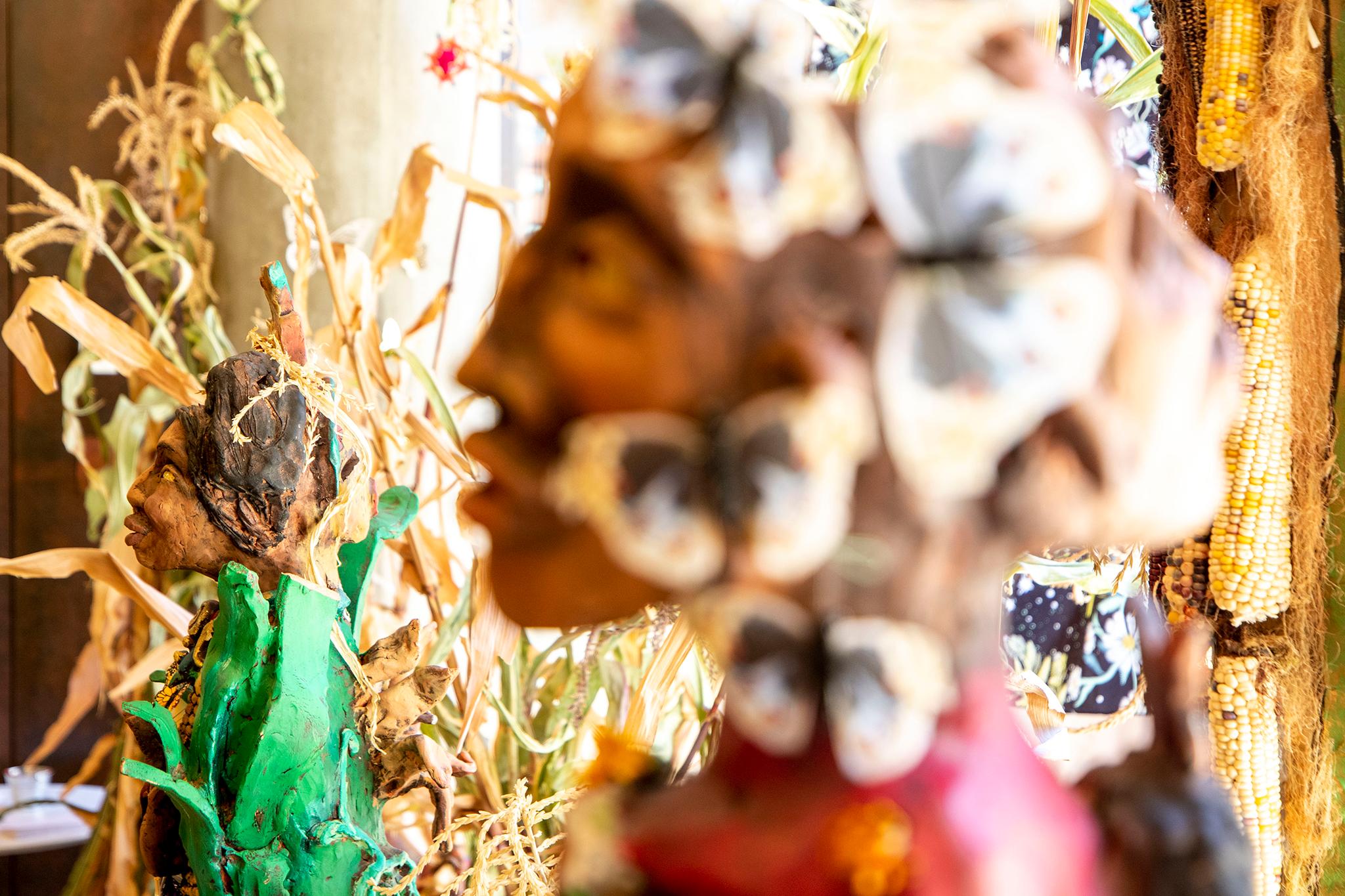
Fajardo said now Corn Mother refers to women who have become the backbones of their community. They provide their own types of sustenance, whether that be through their own community work or support of other community members.
"Corn Mothers are the everlasting hope that life will be OK as long as you never give up," Fajardo said. "So, these women have this spirit that never gives up. They are humble women, important to their communities and we want to lay down that legacy."
Fajardo said the project started about 14 years ago with her own desire to keep the stories her aunties and tios told her throughout her life when they were alive.
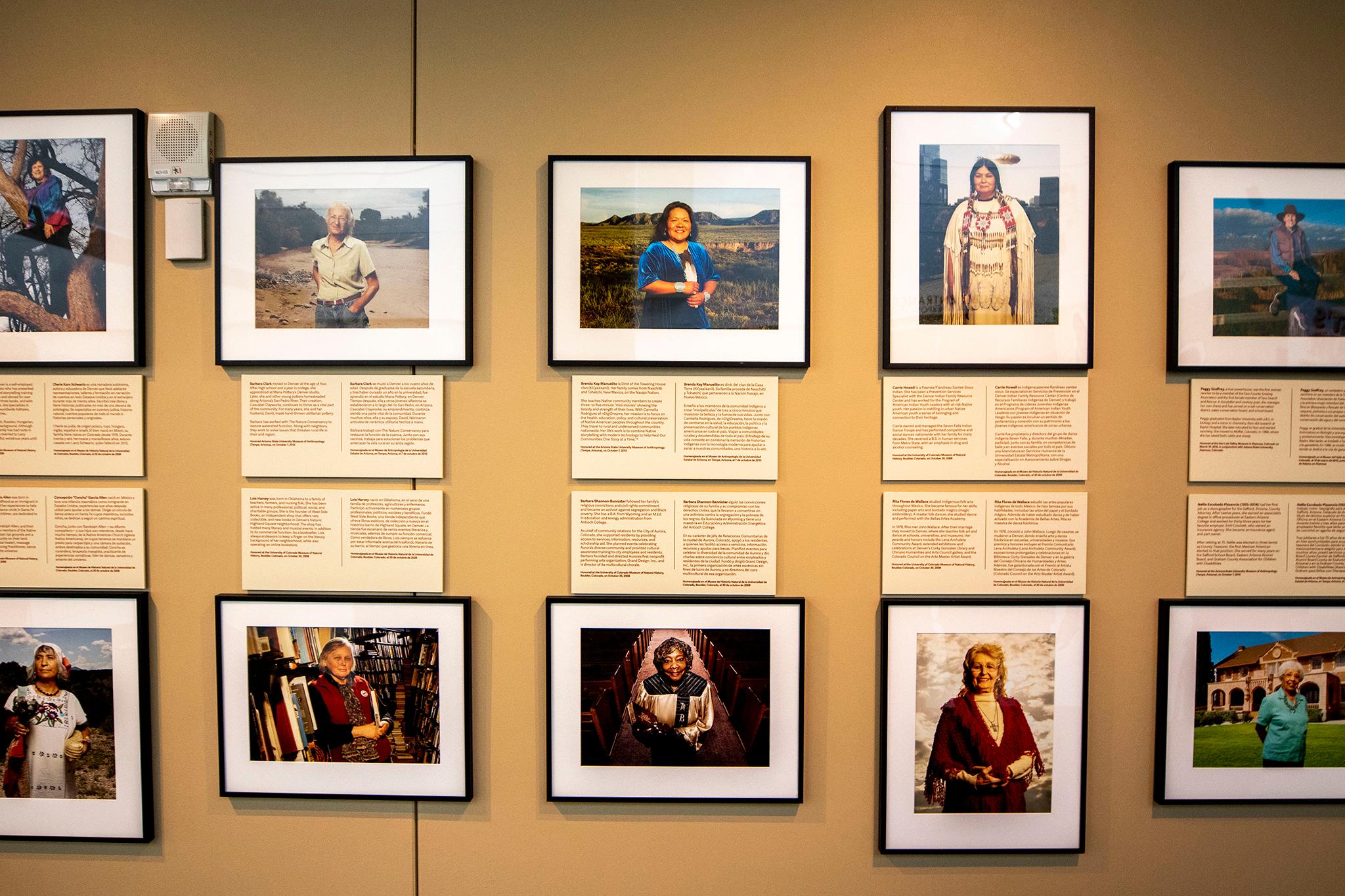
"I'm a 'manita in Colorado, so I have a big family of storytellers and musicians and artisans," Fajardo said. "As I got older, I knew those stories needed to be told. I wanted to make sure they weren't lost. I told Todd we need to do this project. Let's go out and take pictures of these women and get their stories. We talked about it for three years and in 2008 we got it off the ground. Now we have this repository of women and their stories."
'Manita is slang for "little sister" and Todd is Todd Pierson. He's the man behind the camera on the project. There's also editor Ed Winograd.
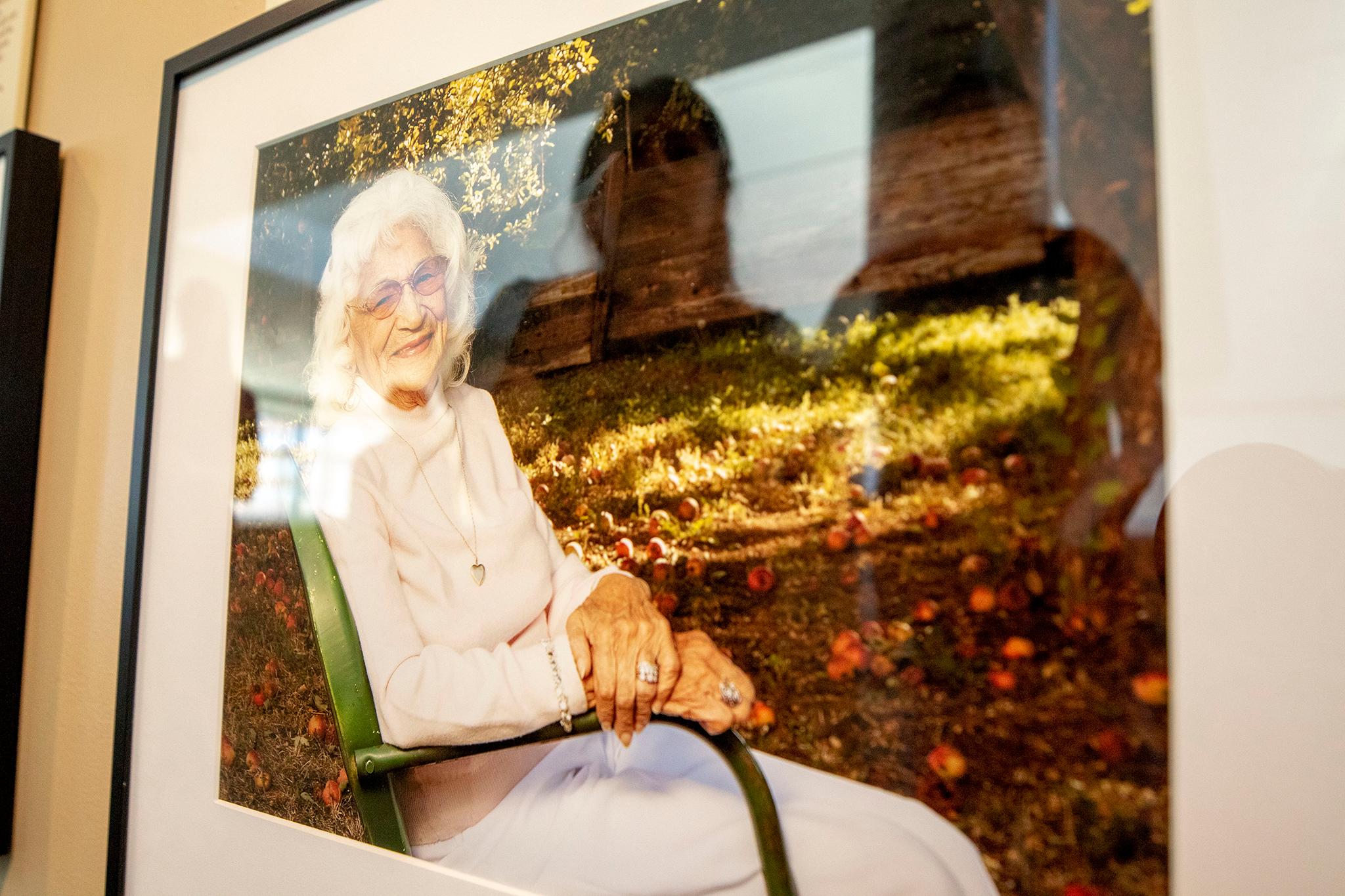
Fajardo said once she, Pierson and Winograd worked out the kinks, they received a small grant from the Rocky Mountain Women's Institute and honored eight women from across Colorado, Texas and Arizona as part of the first cohort of Corn Mothers. That class included Rita Flores de Wallace, a traditional folk artist from Mexico and Fajardo's mentor.
This is how the exhibit works.
Community members select women they see as Corn Mother figures. Once those women are selected, Pierson begins to scout photoshoot locations, places that are also representative of the women. Each woman is then required to tell a story about a Corn Mother in their life. Fajardo said that process is the hardest as it makes each woman dig deep to figure out who is important to them.
Winograd helps the women document their stories and later edits them. The exhibit is then filled with portraits of these women and written stories of their Corn Mothers.
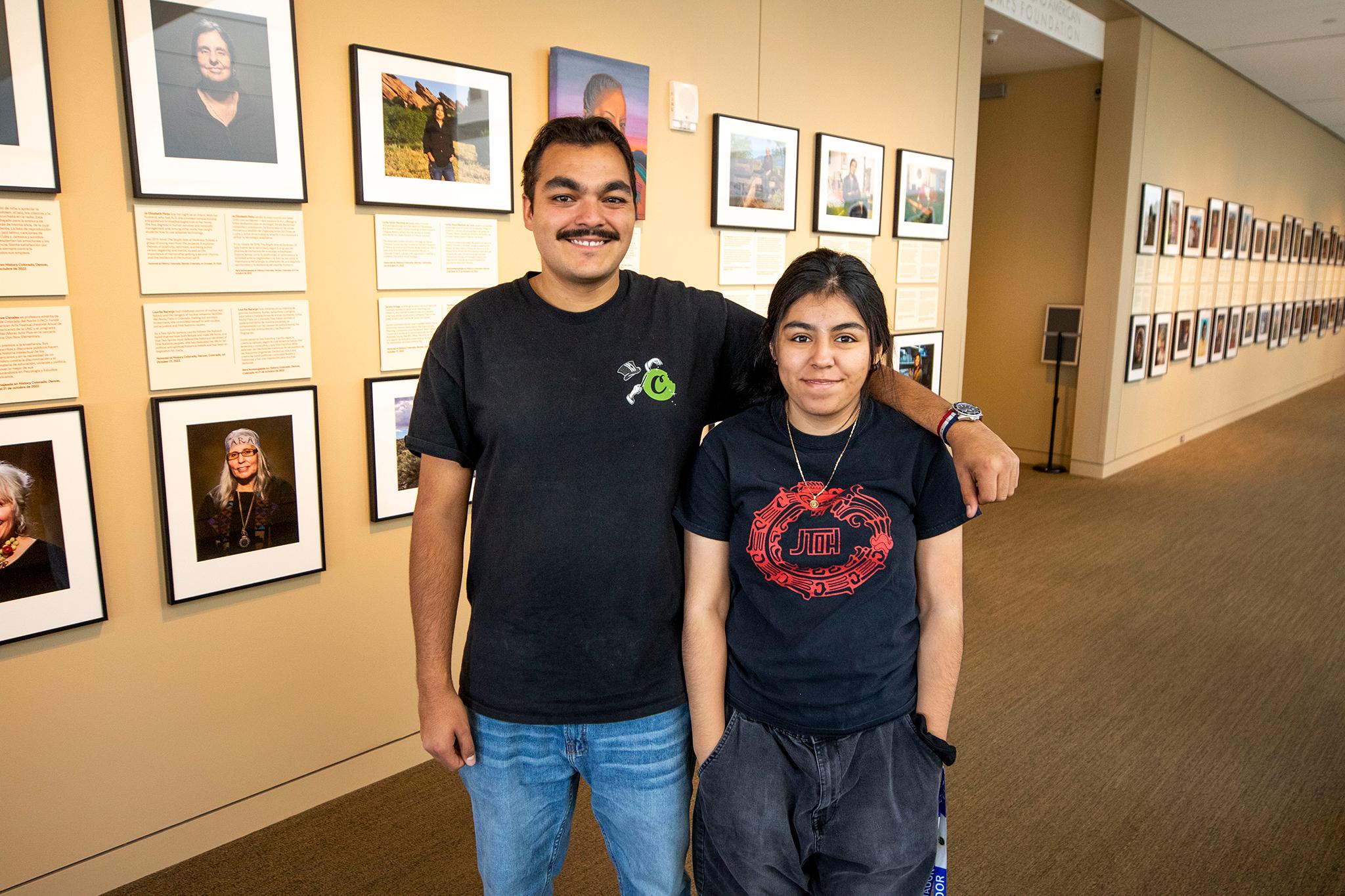
Orlando Moreno said it's double the inspiration. Moreno is a video production student at MSU, class president of the Journey Through Our Heritage program and one of Fajardo's students.
Moreno said as an attendee walks through the exhibit, they'll read the stories of the chosen Corn Mothers and then the stories of their chosen Corn Mothers.
"There's a Corn Mother there for just about everyone and the whole goal is to form a sense of community through these stories," Moreno said. "When people think of Corn Mothers, they think of someone they have to know, like their mom or grandma but it doesn't have to be a family member. Expect to be inspired to find your own Corn Mother, the person that brings out the best possible version of yourself."
Moreno said he'd consider Joan Rivers as a Corn Mother for her contributions to comedy and also Fajardo herself, though she told him "it's a cop out," which is a typical response from a "humble" woman "behind the scenes."
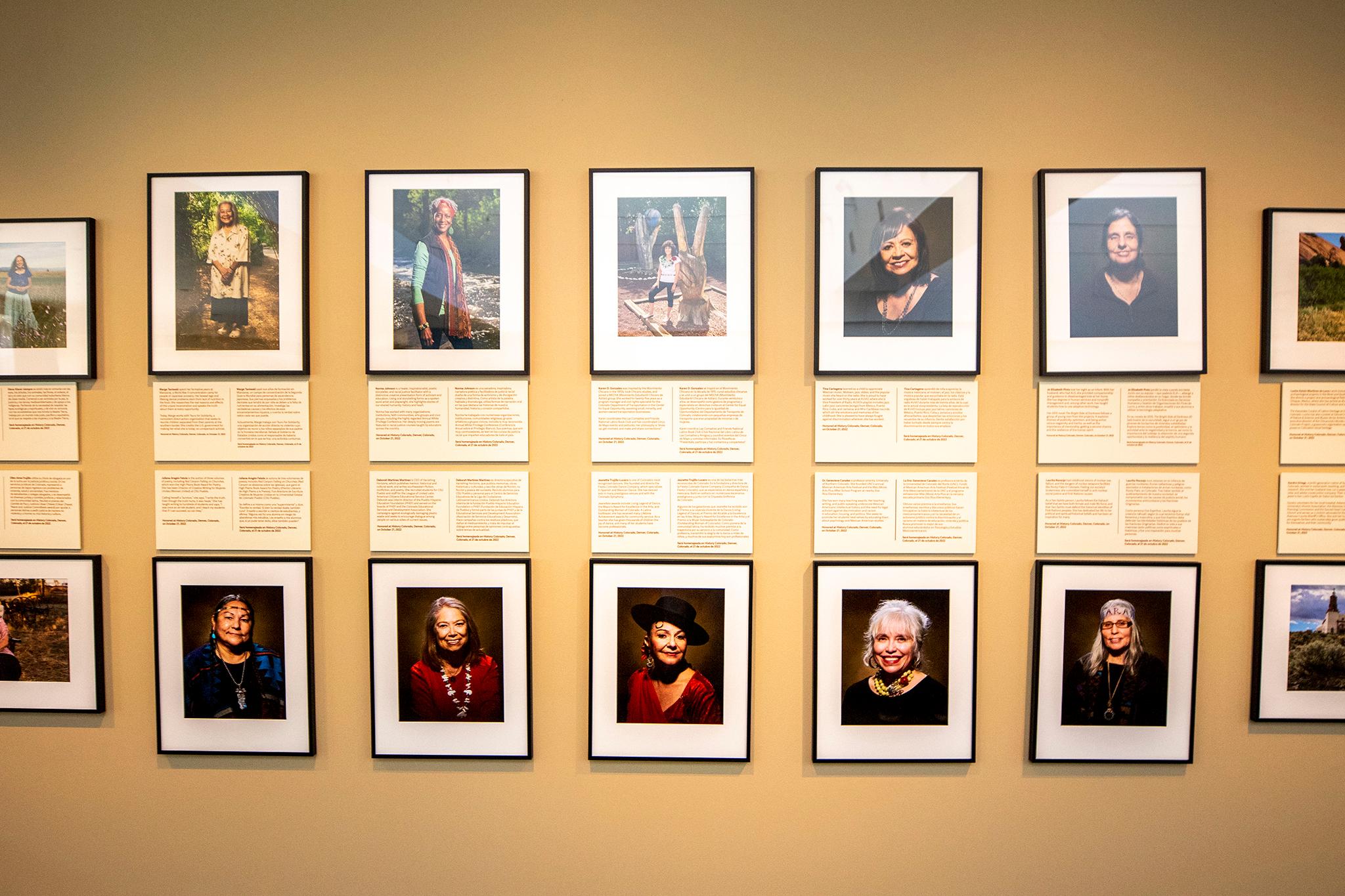
Fourteen years later, more than 50 women have been honored as Corn Mothers. The project was put on hold over the last two years due to the pandemic, so Fajardo knew she wanted to go big this year.
Seven to eight women are typically chosen for the exhibit, but to make up for lost time, 22 will be featured this year.
"This is going to be a top of the line show," Fajardo said. "22 women for 2022."
Some of the women being honored include Lucha Martínez de Luna, director of the Chicano/a Murals of Colorado Project, Marge Taniwaki, host of La Lucha Sigue (The Struggle Continues) on KGNU, and artist Adri Norris.
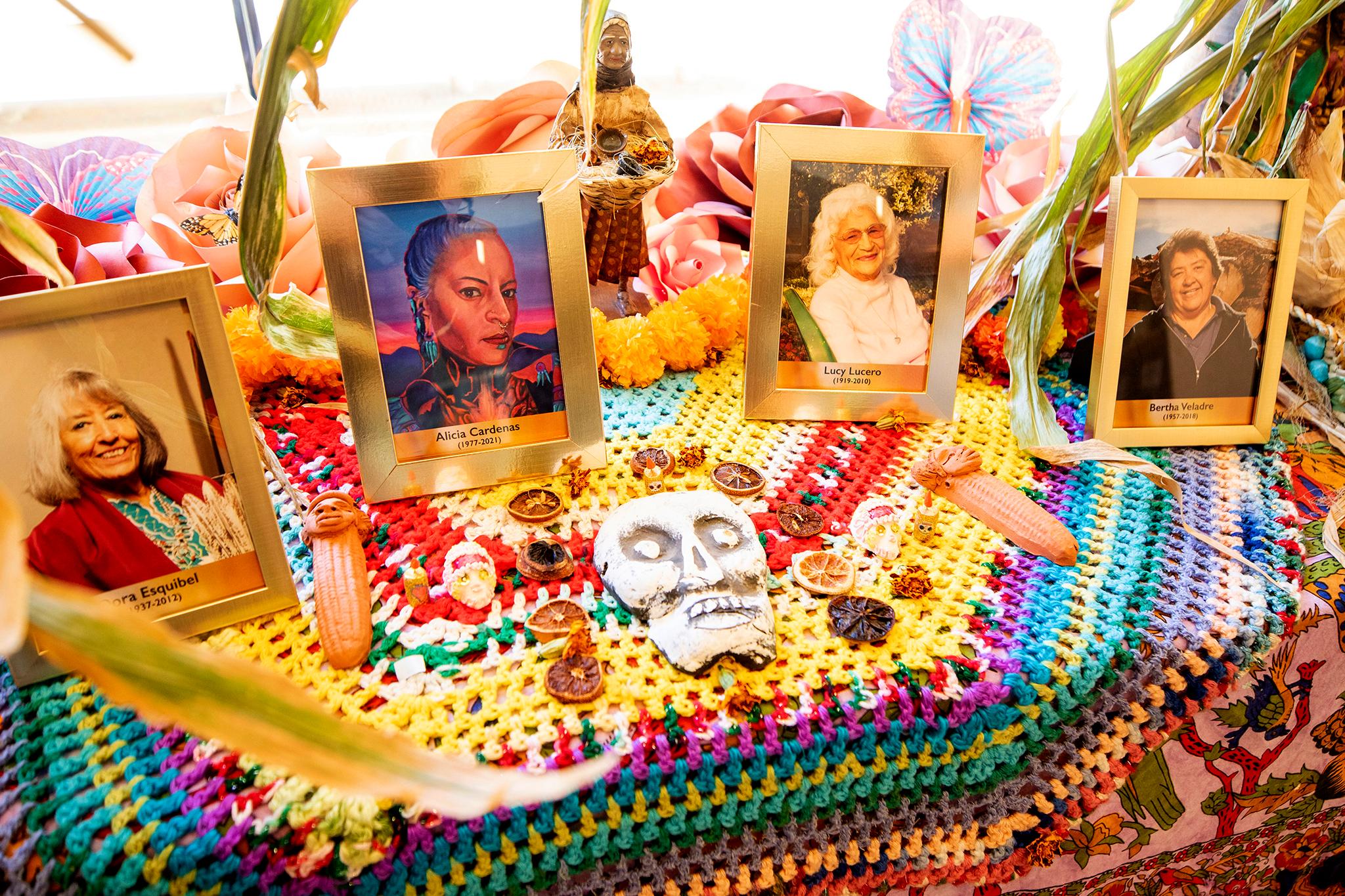
Fajardo said the late Cardenas was killed before completing her story. Her portrait was painted by her mentor Emmanuel Martinez.
"That's why there's always this sense of urgency making sure we get these stories down and record it and take the pictures before they're not here anymore," Fajardo said. "This project is unique in that it's recounting a slice of time in the Southwest that, in a while, might not exist anymore. It'll be gone and the stories will be gone and what will the future generations know? That's why keeping the legacy alive is important."
That's the goal of the project, keeping legacies alive. Fajardo hopes in the future they'll be able to share these stories outside of the state and region like in The Smithsonian to further spread the legacy of the Corn Mothers.
For now, folks can visit the exhibit at History Colorado and on Friday, Fajardo and the team are hosting an opening reception from 5:30 to 9 p.m.
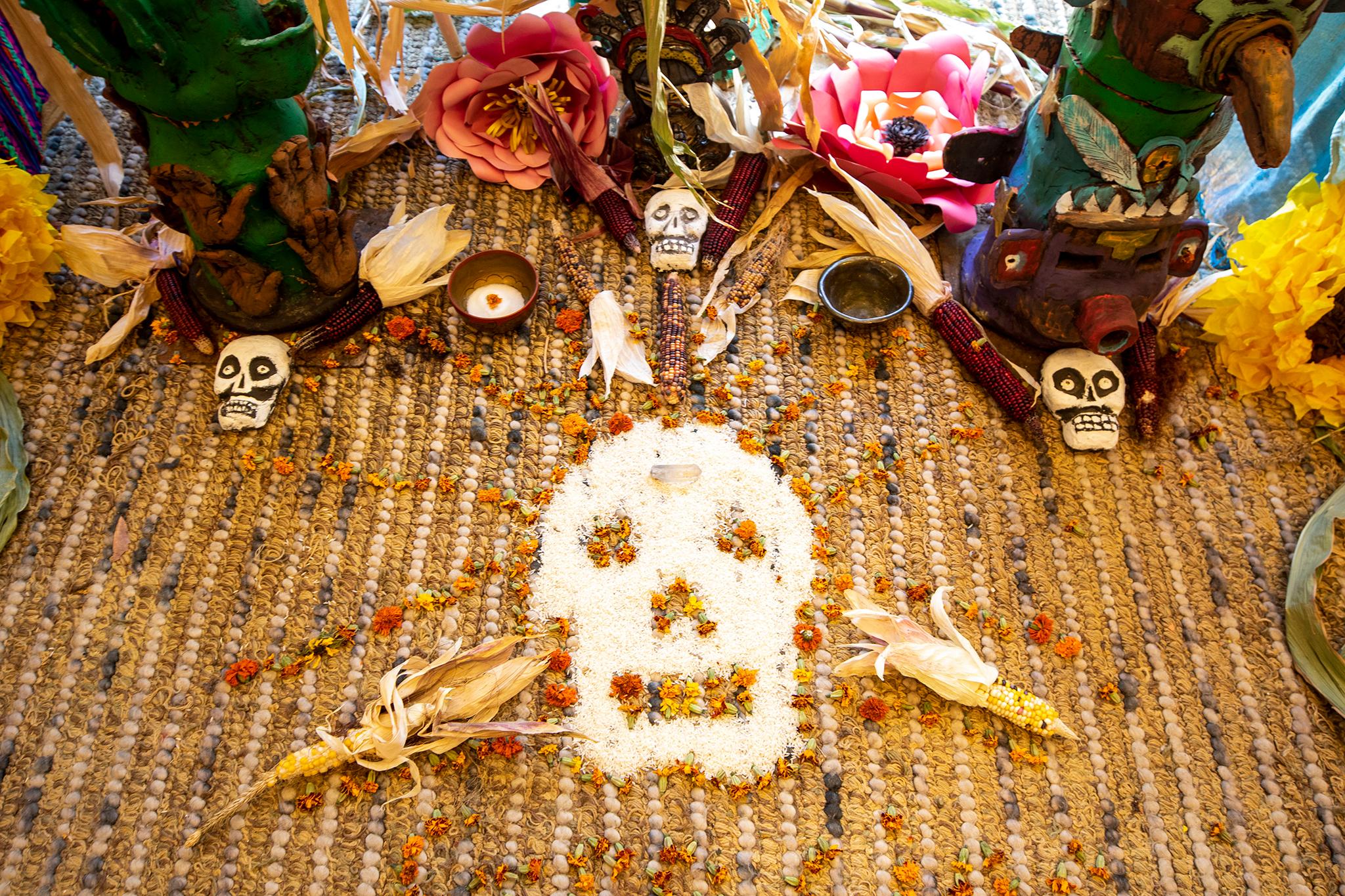
Fajardo and Moreno agree, the exhibit will leave people inspired and thinking of finding their own Corn Mother. Fajardo adds that it's never too late to begin recording these stories but definitely begin before it really is too late.
"You see all these big buildings coming in Denver," Fajardo said. "Places I knew as a kid don't exist anymore. They've gentrified every neighborhood to where even the neighborhood I grew up in doesn't exist anymore. But what's going to exist is these beautiful portraits of these women and their beautiful stories about their women."

